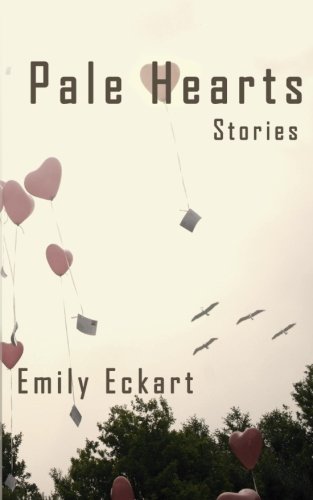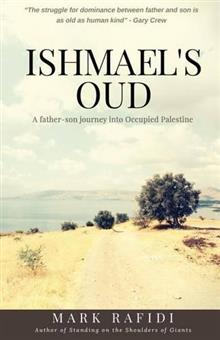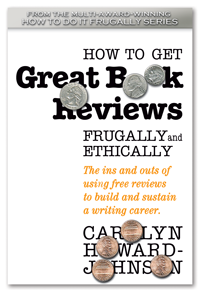 The author of Stack a Deck talks about book four in the Weir Chronicles, provides a catch-up on the first 3 books, her research, the Tick Tock anthology, her favourite method of writing and lots more.
The author of Stack a Deck talks about book four in the Weir Chronicles, provides a catch-up on the first 3 books, her research, the Tick Tock anthology, her favourite method of writing and lots more.
A review of Brie Season by Jen Karetnick
 Jen Karetnick’s Brie Season reminds us that food is life and life is food. The pages of this collection is littered with odes to the art of cooking and eating. The poems remind us of the joy that is food. Karetnick reinforces this understanding by aligning food with mundane items. In this way, we become aware of the specialness inherent in what we eat.
Jen Karetnick’s Brie Season reminds us that food is life and life is food. The pages of this collection is littered with odes to the art of cooking and eating. The poems remind us of the joy that is food. Karetnick reinforces this understanding by aligning food with mundane items. In this way, we become aware of the specialness inherent in what we eat.
A review of Pale Hearts by Emily Eckart
 Emily Eckart’s debut short story collection, is unique and outstanding first and foremost for her literary craftswomanship. In “The Beech Tree”, the first story in the collection, she skilfully uses the imagery of trees, fruit and flowers in showing an unhappy girl’s relationship with her grandmother. More than just a detail of setting, the tree symbolizes the love between Grandma and her late husband, which flourished, grew large and endured.
Emily Eckart’s debut short story collection, is unique and outstanding first and foremost for her literary craftswomanship. In “The Beech Tree”, the first story in the collection, she skilfully uses the imagery of trees, fruit and flowers in showing an unhappy girl’s relationship with her grandmother. More than just a detail of setting, the tree symbolizes the love between Grandma and her late husband, which flourished, grew large and endured.
A review of Bulletproof by Wolfgang Carstens
 Bulletproof is all about mortality and the poems develop like a verse novel as they attempt to come to grips with the inevitable that waits for us all. Despite the morbidity, the poems are never maudlin. In fact, they’re almost cheery, in a grim black sort of way, effectively giving the middle finger to death. How very Lemmy, though he wasn’t immortal after all.
Bulletproof is all about mortality and the poems develop like a verse novel as they attempt to come to grips with the inevitable that waits for us all. Despite the morbidity, the poems are never maudlin. In fact, they’re almost cheery, in a grim black sort of way, effectively giving the middle finger to death. How very Lemmy, though he wasn’t immortal after all.
A review of The World of Yesterday by Stefan Zweig
For much of the book, Zweig brings all his formidable talents as a writer to evoke the Europe which he had lost. There is a fierce intelligence, a passionate humanity, a reverence for art at play here. He is in a sense a revenant, for his first readers no less than for us too, in that he embodies that lost Europe. We are given vivid, indelible portraits of Rilke, Rodin, Freud, Herzl, Hoffmanstahl, Rathenau, Joyce, Richard Strauss… These are some of those whom Zweig met and knew, sometimes worked and collaborated with.
A review of The Writers Room by Charlotte Wood
 Most of the writers interviewed came across as incredibly generous, surprisingly humble, and warm and accessible. Wood allowed the writers to approve their interviews before they went to print, and the resulting transcripts are beautifully readable, smooth and lucid, without losing any of the candid nature of the conversations, or the intimacy. I felt, above all, that the information provided in these interviews was a tremendous act of generosity – not just in terms of authors sharing their best tricks, their struggles and their visions, but also because of the way these discussions draw the reader almost directly into the writing process.
Most of the writers interviewed came across as incredibly generous, surprisingly humble, and warm and accessible. Wood allowed the writers to approve their interviews before they went to print, and the resulting transcripts are beautifully readable, smooth and lucid, without losing any of the candid nature of the conversations, or the intimacy. I felt, above all, that the information provided in these interviews was a tremendous act of generosity – not just in terms of authors sharing their best tricks, their struggles and their visions, but also because of the way these discussions draw the reader almost directly into the writing process.
A review of Ishmael’s Oud by Mark Rafidi
 Mark Rafidi has tiled every page with a distinct selection of orientation and filled it with spicy metaphors. Sometimes he choses to focus on the father and son, and then flashbacks’, yes-unexpected flashbacks into Ishmael’s past collectively snap each jigsaw piece back in place. With every phrase, sentence and paragraph carefully trimmed and mitered an intriguing story emerges that flows into a family saga of blood and bone.
Mark Rafidi has tiled every page with a distinct selection of orientation and filled it with spicy metaphors. Sometimes he choses to focus on the father and son, and then flashbacks’, yes-unexpected flashbacks into Ishmael’s past collectively snap each jigsaw piece back in place. With every phrase, sentence and paragraph carefully trimmed and mitered an intriguing story emerges that flows into a family saga of blood and bone.
A review of How to get Great Book Reviews Frugally and Ethically by Carolyn Howard-Johnson
 Frugality is Howard-Johnson’s stock-in-trade, and since none of her suggestions involve a large outlay, I’d say that picking up a copy of this book is about the most frugal and valuable thing a new author can do in order to generate inexpensive and highly credible publicity. The book is easy to read, and rich with Howard-Johnson’s own considerable experience. Above all, I think the point that she makes about treating the acquiring of reviews, not as an ancillary activity, but an integral part of the promotional campaign and one that cannot be skimped on, is key.
Frugality is Howard-Johnson’s stock-in-trade, and since none of her suggestions involve a large outlay, I’d say that picking up a copy of this book is about the most frugal and valuable thing a new author can do in order to generate inexpensive and highly credible publicity. The book is easy to read, and rich with Howard-Johnson’s own considerable experience. Above all, I think the point that she makes about treating the acquiring of reviews, not as an ancillary activity, but an integral part of the promotional campaign and one that cannot be skimped on, is key.
A review of Daintree by Annie Seaton
It’s obvious that Annie Seaton has put great efforts into researching this story and she is well at home with this genre. The characters throughout are all well honed, coming across as credible, and the immaculately portrayed places fully loaded with poisonous snakes, aggressive cassowaries, amusing characters, exotic parrots, random crocodiles, and a selection of assorted frogs. The writing reveals a majestic and ancient rainforest.
An interview with Laurie Hess, author of Unlikely Companions
 The author of Unlikely Companions talks about the inspiration for her book, about how she managed to fit writing into her busy schedule, about the sugar glider story, the best piece of advice she was ever given, her heroes, and lots more.
The author of Unlikely Companions talks about the inspiration for her book, about how she managed to fit writing into her busy schedule, about the sugar glider story, the best piece of advice she was ever given, her heroes, and lots more.